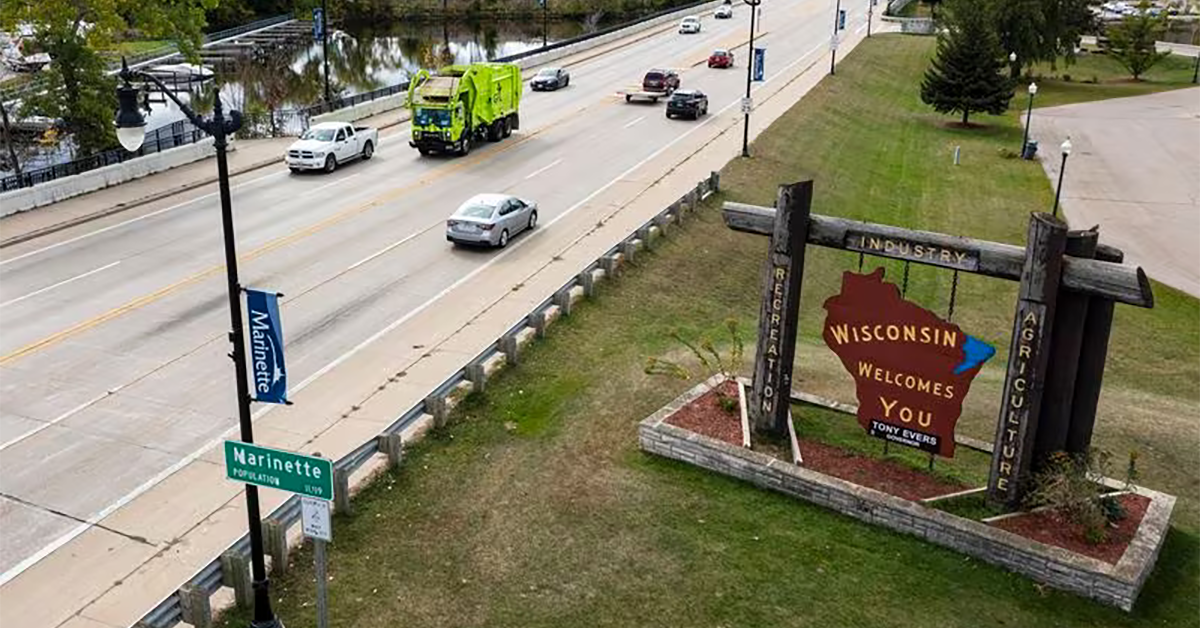Cross-Border Cannabis: The Michigan-Wisconsin Divide on Marijuana Enforcement

Heather Robertson, an employee at Rize, a recreational marijuana dispensary in Menominee, Michigan, has experienced frequent police stops upon returning to her home in Wisconsin, where marijuana remains illegal. She suspects these stops are due to her association with the dispensary, as officers often inquire about the presence of marijuana in her vehicle. Despite not receiving any tickets, Robertson's experiences highlight the growing tension at the Michigan-Wisconsin border following the legalization of recreational marijuana in Michigan.
This tension is evident in the rising number of marijuana-related citations in border counties. For instance, Florence County saw an increase from four citations in 2019 to 83 last year, coinciding with the commencement of recreational marijuana sales in Michigan. Similarly, Marinette city police reported a significant jump in citations, from 129 in 2019 to 548 last year.
Local residents and marijuana enthusiasts believe Wisconsin police are closely monitoring dispensaries and customers, particularly those with Wisconsin license plates. This suspicion has led to frequent warnings among dispensary clients about potential police stops upon re-entering Wisconsin.
Despite these concerns, Wisconsin law enforcement officials deny any targeted surveillance or marijuana enforcement operations. Marinette County Sheriff Randy Miller emphasizes that their primary focus is on combating more severe drug issues, such as fentanyl, heroin, and methamphetamine.
The availability of marijuana in Michigan and its illegality in Wisconsin has created a unique challenge for law enforcement. Officers often encounter marijuana during routine traffic stops, especially when dispensary packaging is visible. Florence County Chief Deputy TJ Peterson acknowledges the ease of finding marijuana on travelers, given the dispensaries at both ends of the border.
Kay Lynn Olesen's experience exemplifies this situation. Pulled over for minor traffic violations, a deputy noticed a dispensary bag in her car and issued a citation. Olesen, a Green Bay resident, where small amounts of marijuana are decriminalized, contested her ticket, expressing her desire for Wisconsin to follow the legalization trend.
Marinette, a bustling city connected to Menominee, Michigan, is experiencing growth, with increased job opportunities and a rise in felony cases. Police Chief Jon Lacombe, emphasizing the city's busy law enforcement agenda, refutes any notion of targeting marijuana users.
Despite higher marijuana possession citation costs in Marinette, former Police Chief John Mabry clarifies that revenue generation is not the objective. The city's budget reflects a minor contribution from court fines, including those for marijuana offenses.
Lacombe, with deep roots in Marinette, recalls a focus on combating heroin in the mid-2000s. He acknowledges the benefits of marijuana legalization, citing reduced risks compared to illegal grow operations and potentially tainted products.
In nearby Peshtigo, Police Chief Fred Popp foresees marijuana legalization as inevitable. He notes a shift in law enforcement perspectives over time, with more experienced officers viewing the issue in shades of gray rather than black and white.
This sentiment is echoed in Florence County's decision to train their drug-sniffing dog without marijuana detection, anticipating future legalization. The county is willing to forego marijuana citations, considering the broader implications for law enforcement.
Share this article:
Spotted a typo, grammatical error, or a factual inaccuracy? Let us know - we're committed to correcting errors swiftly and accurately!








 Helpful Links
Helpful Links